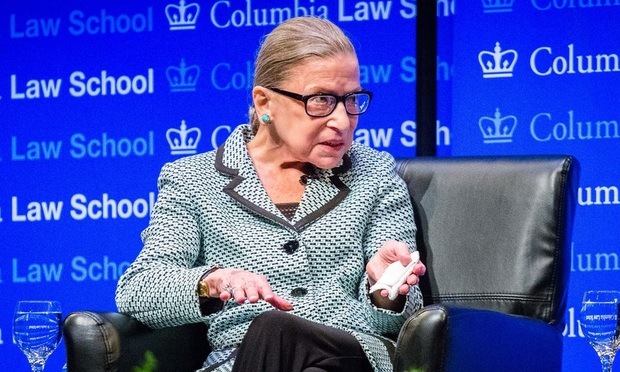In the decades since U.S. Supreme Court Justice Ruth Bader Ginsburg was a litigator fighting for equal rights for women, the field of interested parties has grown on both sides of the political spectrum, which often means a larger stack of amicus briefs for the high court to sift through.
But speaking on Friday at a panel discussion at Columbia Law School on how impact litigation can affect public policy change, Ginsburg said the proliferation of interest groups involved with litigation has been “worrisome” in some instances, citing the high court’s split ruling this year in a case to strike down a California law requiring “crisis pregnancy centers,” which do not provide abortions and oppose them, to post notices that reproductive services are available elsewhere.
This content has been archived. It is available through our partners, LexisNexis® and Bloomberg Law.
To view this content, please continue to their sites.
Not a Lexis Subscriber?
Subscribe Now
Not a Bloomberg Law Subscriber?
Subscribe Now
LexisNexis® and Bloomberg Law are third party online distributors of the broad collection of current and archived versions of ALM's legal news publications. LexisNexis® and Bloomberg Law customers are able to access and use ALM's content, including content from the National Law Journal, The American Lawyer, Legaltech News, The New York Law Journal, and Corporate Counsel, as well as other sources of legal information.
For questions call 1-877-256-2472 or contact us at [email protected]


 Supreme Court Justice Ruth Bader Ginsburg speaks at Columbia Law School which held a special event to honor the 25th anniversary of her investiture. (Photo by David Handschuh/ALM)
Supreme Court Justice Ruth Bader Ginsburg speaks at Columbia Law School which held a special event to honor the 25th anniversary of her investiture. (Photo by David Handschuh/ALM)





